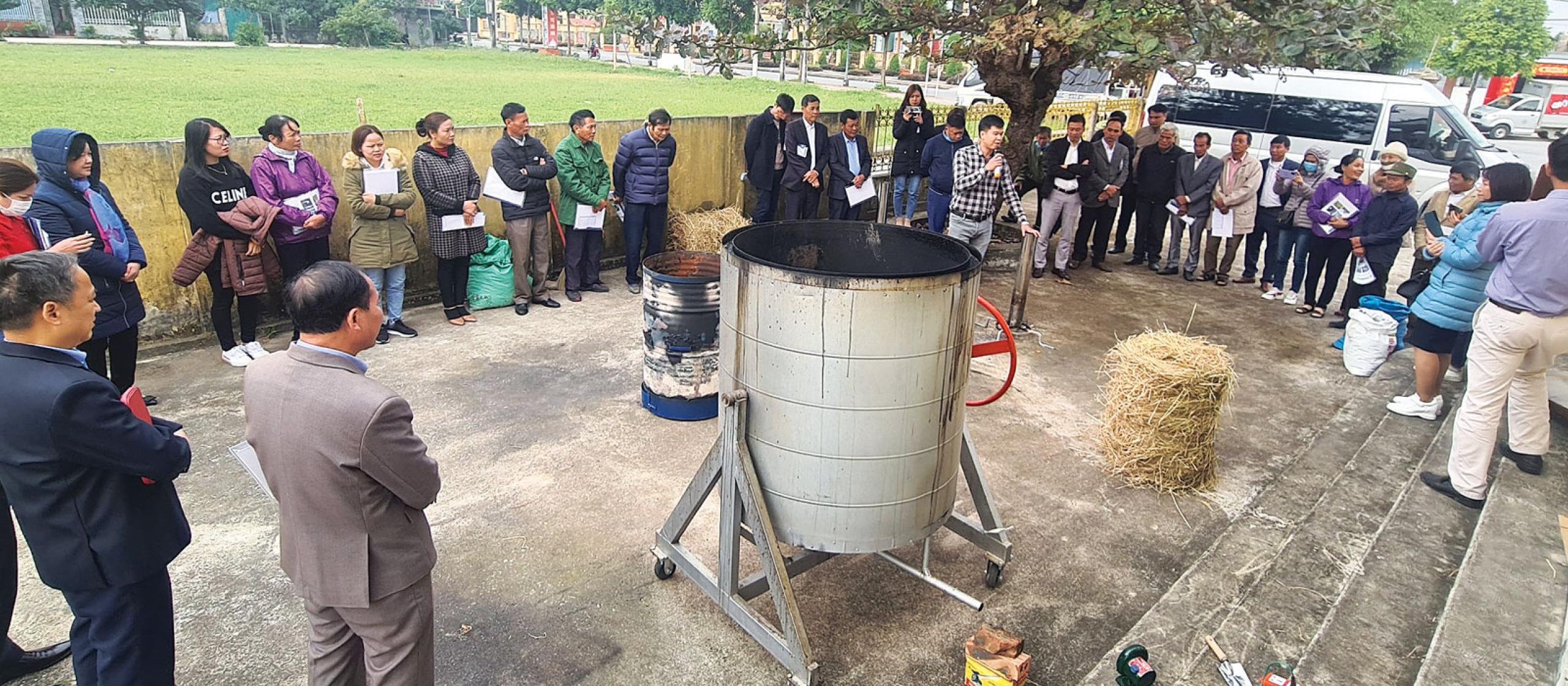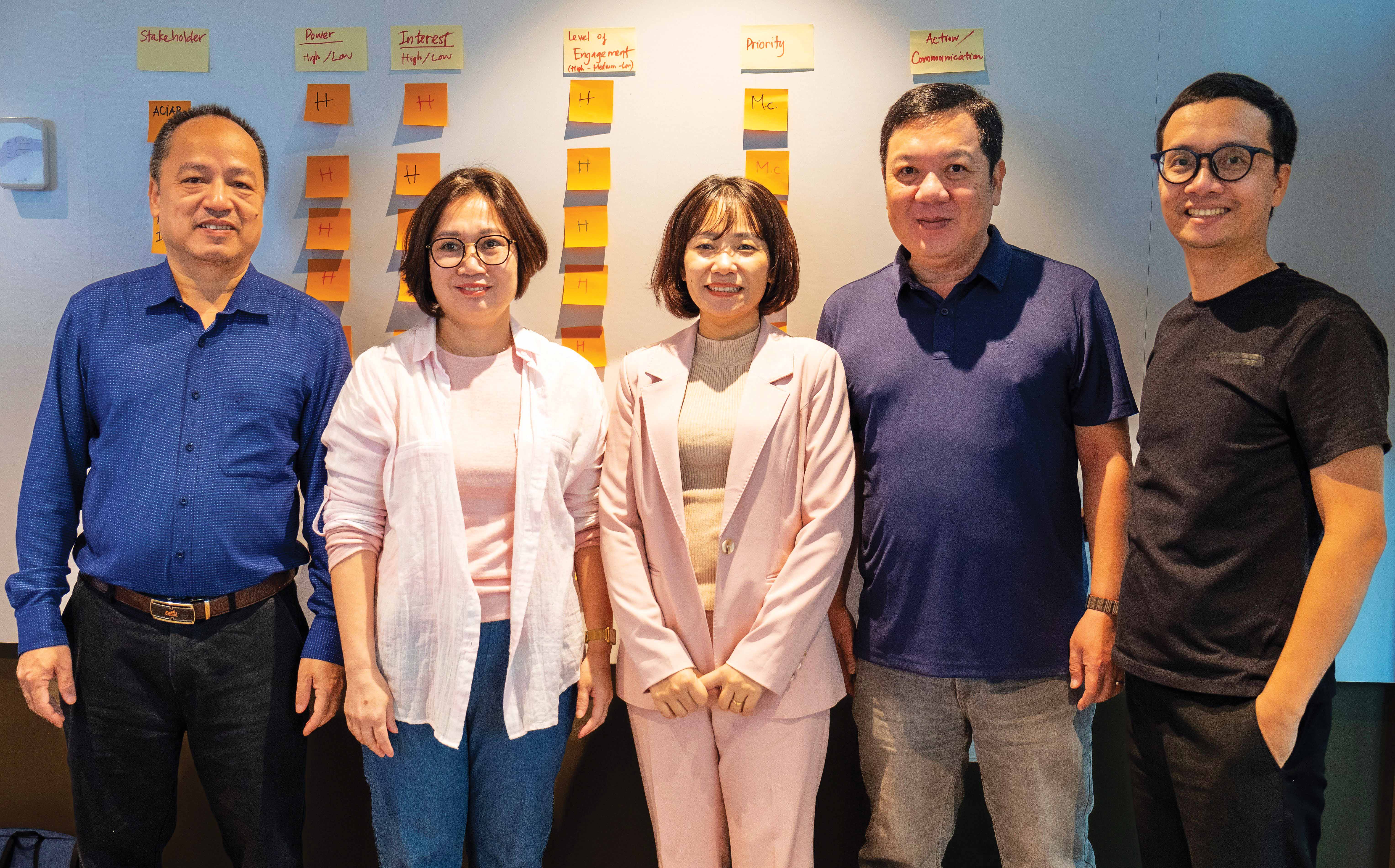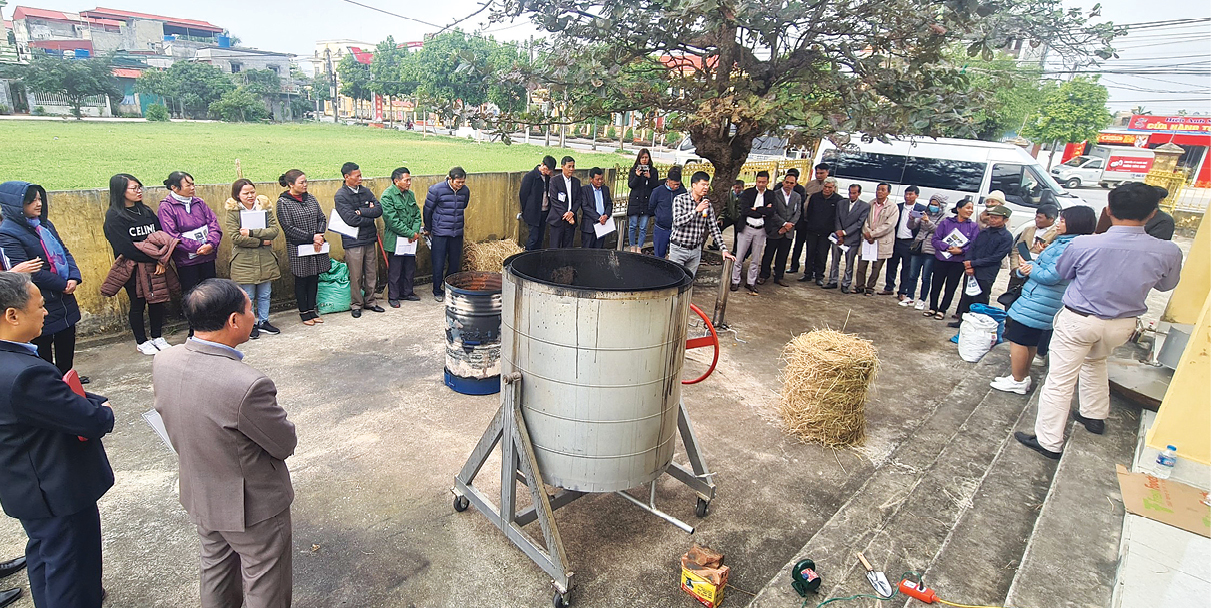Three years ago, there was little awareness among smallholder farmers in Vietnam that their crop residues had a hidden value that could increase farm productivity and boost their incomes. Both biochar and the circular economy were virtually unknown concepts.
However, a project developed through the ACIAR John Dillon Fellowship (JDF) program has introduced both concepts to ricegrowers in Vietnam’s Thai Binh Province (in the Red River Delta Region) and coffee growers in the Dak Lak Province (in the Central Highlands Region), where they are gaining grassroots acceptance.
Project leader Dr Tran Van The, Vice-Director from the Institute for Agricultural Environment, said the need to reduce the environmental impacts of rice farming was an important driver for the collaborative project, which involved 6 John Dillon Fellows from across Vietnam.
Rice farmers typically burn their crop residues in the open field, creating a source of pollution and carbon emissions. Rice straw that is left to rot in flooded paddies also generates significant quantities of methane, a highly potent greenhouse gas.
Dr The said providing smallholder farmers with options to make better use of crop residues – such as biochar – would help them to move away from environmentally damaging practices. Biochar could positively contribute to farming enterprises as a fertiliser and soil conditioner that improves crop yields and soil health. It would also help to build broader circular economy practices in Vietnam.





